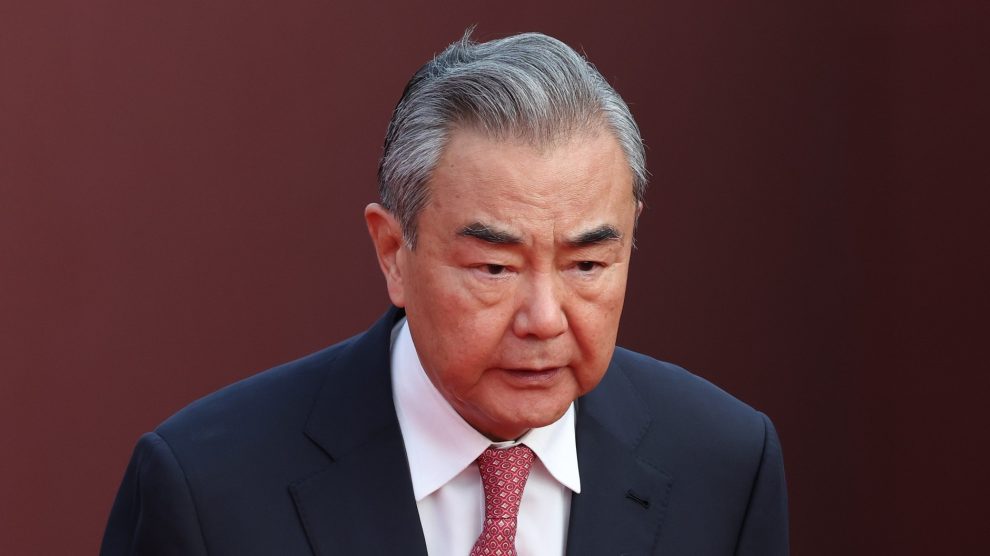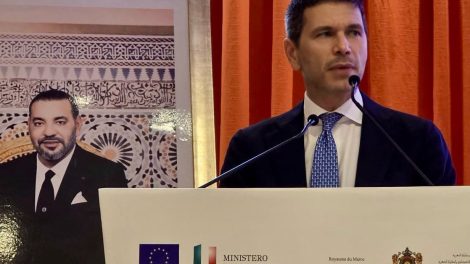On October 8, Wang will co-chair the 12th Italy-China Intergovernmental Committee at Villa Madama alongside Italian foreign minister Antonio Tajani, before meeting President Sergio Mattarella at the Quirinale Palace.
- The visit follows Mattarella’s and Prime Minister Giorgia Meloni’s trips to Beijing, which revived, on 2024, the 20-year strategic partnership with a three-year action plan and new cooperation memoranda.
Why it matters: Rome wants to keep communication with China open, but within a derisking framework aligned with the EU and transatlantic strategy.
Rome between dialogue and caution. Italy is multiplying its signals of balance:
- Openness to economic cooperation with Beijing in selected areas.
- Stronger safeguards for economic and technological security.
- Support for EU measures, including tariffs on Chinese electric vehicles.
- Meloni’s line is an open yet vigilant posture, ensuring that economic cooperation does not override the boundaries of security, interoperability, or industrial (and political) sovereignty.
The new “Buy Transatlantic” paradigm. A cornerstone of Italy’s evolving strategy is the new decree introducing “Buy Transatlantic” criteria in ICT and cybersecurity procurement tied to critical infrastructure.
- Bonus points go to bids using technology from Italy, the EU, NATO members, or like-minded partners such as Japan, Israel, South Korea, Australia, New Zealand, and Switzerland.
- Goal: reduce exposure to Chinese suppliers after multiple cases of technological vulnerabilities in public systems.
- The framework sits between Washington’s “Buy American” and Brussels’ future “Buy European” plans.
- Looking ahead: “Buy Transatlantic” could become a reference model for defence procurement, in line with NATO’s focus on the economy-security nexus.
Energy and national security. Second step: Italy has become the first EU country to exclude Chinese-made solar panels and components from new renewable-energy incentives.
- The decree links energy security to geopolitical resilience, echoing the EU’s Clean Industrial Act.
- China controls roughly 80% of global solar-module production.
- Rome’s goal: cut dependence on Beijing and build a stronger Western supply chain.
- Expert view: Economist Carlo Pelanda calls it “a courageous geoeconomic move” that strengthens Italy’s alignment with Washington and reinforces its industrial autonomy.
Geopolitical balancing act. A source familiar with the discussions describes Italy’s position as a caution-turned-strategy moment:
- Dialogue with Beijing stays open, but within clearly defined security boundaries.
- Economic cooperation becomes selective rather than automatic.
- Italy is a laboratory of the new Euro-Atlantic balance, where engagement and derisking coexist.
- In one word: awareness.
The European frame. Brussels defines China as a “partner, economic competitor and systemic rival” — a formula that also shapes Italy’s approach and now intersects with the Trump administration’s strategic recalibration toward Beijing.
Bottom line: Italy isn’t closing the door on China — it’s entering a new phase of deliberate engagement:
- Talking with Beijing while protecting what matters, fully aware of the political weight of the relationship across key dossiers — From Russia’s war in Ukraine and Europe-Asia maritime routes to Africa (see the Lobito-Tazara competition), the Middle East, and the Indo-Pacific, especially ties with India, Japan, South Korea, ASEAN and Taiwan.





